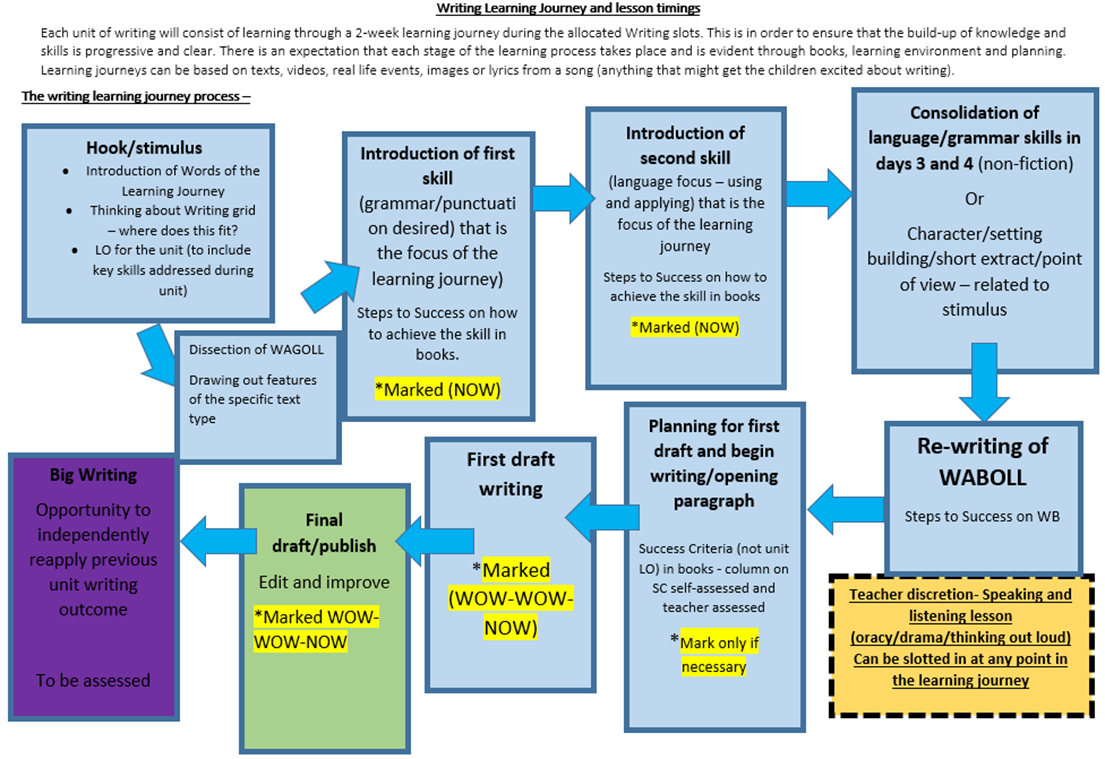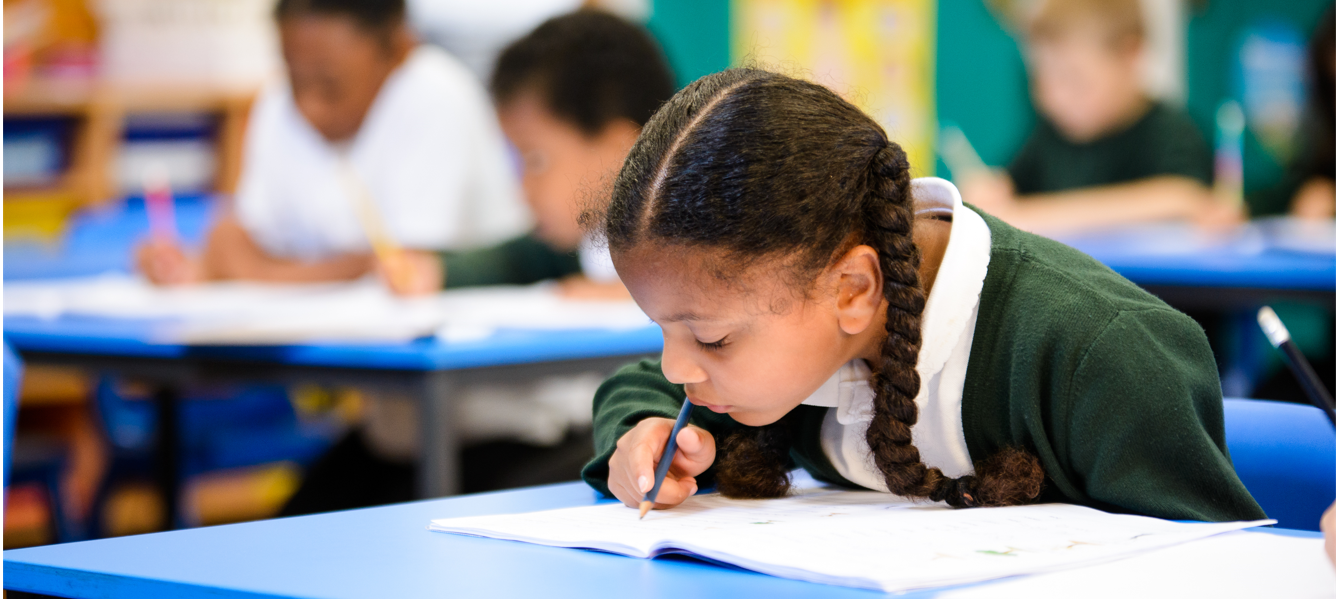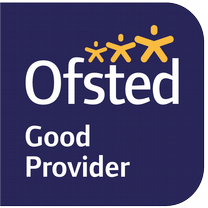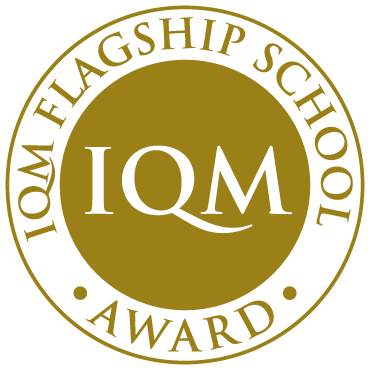By the time children leave Bush Hill Park Primary School we want them to have developed a love for reading and writing and to be able to express their ideas and thoughts clearly and creatively and to find joy in losing themselves in a good book. We follow the National curriculum for the teaching of English across the school. From this, we have developed our own writing and reading programmes to meet the needs of our pupils. Reading, writing and SPaG (Spelling, Punctuation and Grammar) are taught through the use of high-quality texts and hooks, exposing all children to a wide range of material, in a variety of ways. We teach English through phonics, reading and writing.
Phonics
We follow a DfE validated systematic synthetic phonics programme, called Read, Write Inc. This is taught from Reception to year 2. The children are assessed and grouped according to their ability. This enables teaching to be focused to meet their needs very specifically. Through pupil tracking, phonics catch-up also takes place in years 3 and 4 to support those children who still need focused phonics teaching. Towards the end of their time in Nursery, all children are exposed to the RWI phonics programme, looking at the initial sounds. They are prepared for this given the focus on pre-phonics exposure children receive as part of their Nursery provision.
In the Summer Term of Nursery, children are introduced to the Read Write Inc phonics programme and this builds on the previous input from pre-phonics. This programme operates through Reception and Year 1 and is designed to teach children to read accurately and fluently with good comprehension. The children learn to read the 40+ sounds and learn to blend these into words. From the very beginning children experience success.
All children are quickly grouped according to ability and are assessed every four to six weeks. Children who need extra support to meet national expectations are targeted quickly and picked up for additional support. Our aim is to get all the children confident with blending as quickly as possible so they are able to develop that love of reading from an early age. We ensure the whole school is familiar with the RWI systems and routines and with the crucial phonic knowledge in order to support readers across the school.
We firmly believe that it is the teacher’s job to teach the children how to read but we ask our parent community to support their children with practising this skill at home. Pupils take home a book each week which mirrors the phonic teaching they have had during the week. This enables the pupil to practice their sounds and blending and build their self- confidence.
At the end of Year 1 all children will participate in a Phonics Screening Check. The Phonics Screening Check is taken individually by all children in Year 1 in England, and is usually taken in June. It is designed to give teachers and parents information on how children are progressing in phonics. It will help us as a school to identify whether your child needs additional support at this stage so that they do not fall behind in this vital early reading skill. There are two sections in this 40-word check and it assesses phonics skills and knowledge learned through Reception and Year 1.
In the Autumn term in year 2, children receive daily phonics lessons to ensure continuity of progression, this takes place in addition to their daily reading lessons. For children who are new to English and arrive in our school in Year 2 or beyond and for those who are yet to meet the standard, phonics continues in Year 2 beyond the Autumn term, with children getting support on a 1:1 basis in addition to their reading and writing lessons.
Reading
At Bush Hill Park Primary School, we have developed a curriculum that encompasses reading at all stages. One of our key curriculum drivers is ‘never a missed reading opportunity’. Therefore, reading does not only sit as a standalone lesson. Evidence shows that confidence and passion for reading is closely linked to future success and positive outcomes. As such, all subject areas seek to weave reading naturally into all curriculum areas and all lessons taught. In addition, we have a range of explicit strategies, including a bespoke curriculum offer to meet the reading needs of the children here at Bush Hill Park Primary School. All children at Bush Hill Park Primary School will leave as fluent readers who have a range of strategies to read and understand unknown words and texts. They will be lifelong readers with high levels of comprehension, understanding and most importantly a love of reading.
Reading sessions are taught daily in all year groups from Reception through to Year 6, with a focus on developing fluency, comprehension skills and importantly a love of reading. Reading at EYFS and KS1 (and for those reading at a KS1 level) is broadly concerned with further developing decoding and fluency skills. Children are also taught basic comprehension skills and understanding of texts.
In Nursery and Reception this is done through the ‘Super Six’. This approach immerses children in high quality, diverse books. It involves lots of talk, role play and tuff tray activities that provide cross curricular links into all aspects of their learning. We develop children’s writing through spoken language and comprehension of stories.
From Year 1 to Year 6 children receive daily reading lessons that follow a structure we have developed that is unique to the needs of our children. It takes a blend of known strategies and is entrenched in research from the EEF and DfE for supporting our journey to becoming a reading school. The following timetable demonstrates the structure of focus of the daily lessons. During PPA, teachers select high quality texts that are age appropriate but provide stretch and challenge. These are rotated between text types and genre and ensure opportunities for our curriculum drivers to be further implemented through a diverse experience of texts.
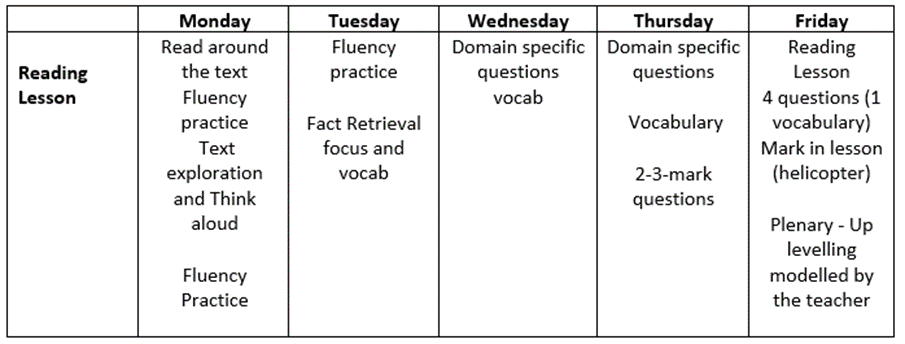
The reading lessons are concerned with continuing to develop strategies such as using background knowledge, asking questions and visualising for reading unknown words. There is a weekly focus on specific content domains that develop the comprehension and understanding of children including inference, prediction, explanation, retrieval and summarising of the texts. Vocabulary and fluency development feature heavily and we have embedded numerous practices around the daily development of these with our ‘active reading strategies’.
All staff have had explicit training and an ongoing sequence of CPD to ensure that reading across the school can be prioritised through knowledgeable and skilled staff.
Class Reader
Every day at Bush Hill Park Primary School, all children find enjoyment in a shared book that is read aloud to them. Through our class reader, children are exposed to a wide range of rich, interesting and diverse texts. This is a valued time of each day that inspires all children to love reading. We intentionally map a wide range of over 250 books, carefully considering genre, representation and interest in order to offer our children a vast menu of books that they will have had read to them by the time they leave us at the end of Year 6. This is in addition to the vast range of texts, books and stories that children come into contact with daily through texts chosen by their teachers, our reading curriculum and lesson extracts and books used to support learning across the curriculum.
Home Reading
At Bush Hill Park Primary School, we use Bug Club to support our children to read at home. All children are allocated a book that is banded to their reading ability so they can confidently read at home. Children then take comprehension quizzes at the end or at different sections of their book before they move on to another book. Teachers monitor this regularly and assign individual books or a selection of books for all children to access.
In addition to this, children also take home a book from the book corner or school library of their choice.
In Nursery children take a reading book home from the Autumn term. This may contain no or a few words and will be allocated according to ability.
Children in all year groups will have access to home reading books beyond their reading age/stage that can be shared with a family member at home.
Writing
At Bush Hill Park Primary School, intend to create confident writers who develop stamina for writing throughout school. We aim for all of our children to be independent writers, building on a range of skills as they work through each journey of writing. Throughout this journey, we ensure the children are immersed in a range of genres and have a clear understanding of purpose. Our learners will have a secure understanding of the purpose of a text type, the purpose and intended impact of writing skills/tools and the ability to carefully select vocabulary with careful attention to the desired effect on the readers’ thoughts and feelings. Our learners are challenged and encouraged to take risks and view mistakes as another part of the learning process. Our learners will always set high expectations for themselves where they take pride in all aspects of learning and in everything they produce.
The teaching of writing is based on our Bush Hill Park Programme. In Reception children are enthused to write through the high-quality texts explored as set out in our long-term writing plan. As well as having lots of opportunities to write independently. English lessons take place on a daily basis from year 1 through to year 6 with writing also a regular focus feature in EYFS.
There is a heavy focus on composition and basic skills through the use of quality texts, grammar is woven through our writing journey and is taught explicitly with direct application to the piece children are working on. Spelling and handwriting are taught discretely but also fully incorporated into RWI and writing lessons. We follow the 2014 National Curriculum appendices for spelling. These skills we expect to see being applied to their written work. Every fortnight, the children have a BIG writing lesson in their classes. Here they focus on a piece of writing they have been working towards during the week, or a piece that is revisiting a genre they have previously studied. This gives the children the opportunity to write for an extensive amount of time. This supports them in building stamina for writing, but also gives the opportunity to write uninterrupted for a long time.
Teachers have strong subject knowledge around writing and planning for effective writing outcomes. All staff have been trained to use ‘Sticky Learning’ strategies to ensure children retain knowledge and skills learned. Examples of ‘Sticky Learning’ strategies include: activating prior knowledge; chunking learning; retrieval practice strategies; analogies; use of the saliency, primacy and recency effect etc. Staff use Challenge, Explanation, Modelling, Questioning and Feedback as core principles of effective teaching. We utilise internal and external expertise to provide all staff with the CPD required to effectively teach writing.
Our approach to writing follows a cyclical approach to ensure that children become familiar with the fundamentals of writing. When planning a unit of writing, teachers ensure that:
- They create a buzz about the writing process by hooking the children in and sharing the audience for their writing
- They share and unpick the features of the genre/text type being studied
- They model the spelling, punctuation and grammar features needed to effectively write for a purpose
- They give children the opportunity to practise an element of the writing process and give targets for development
- A consistent approach to planning fiction, non-fiction and poetry pieces
- Children talk through their planning with an adult or peer
- Children are given time to write an extended piece of writing as well as time to edit and improve their own and others’ writing
- Drafts of writing are marked with next steps given to promote progress
